Liam Davies
The Weir'd New Clyde
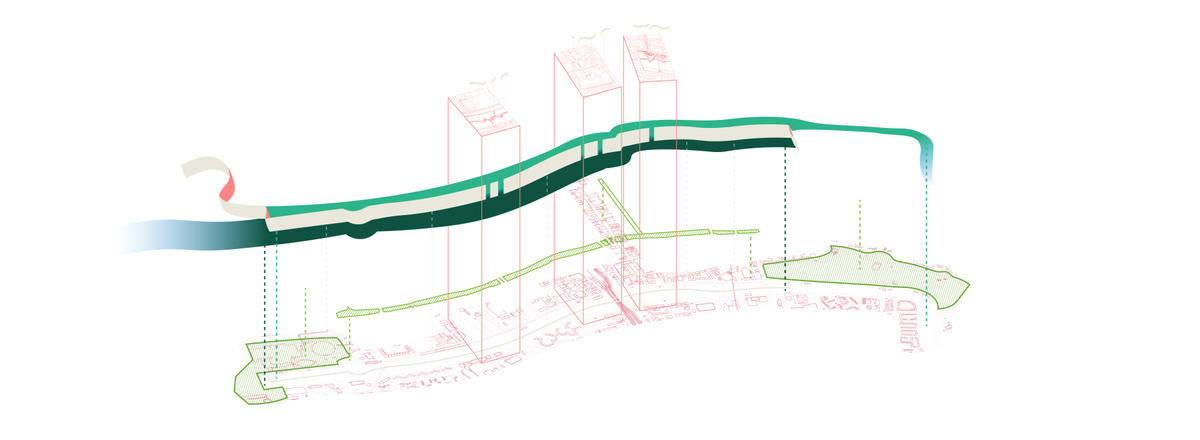
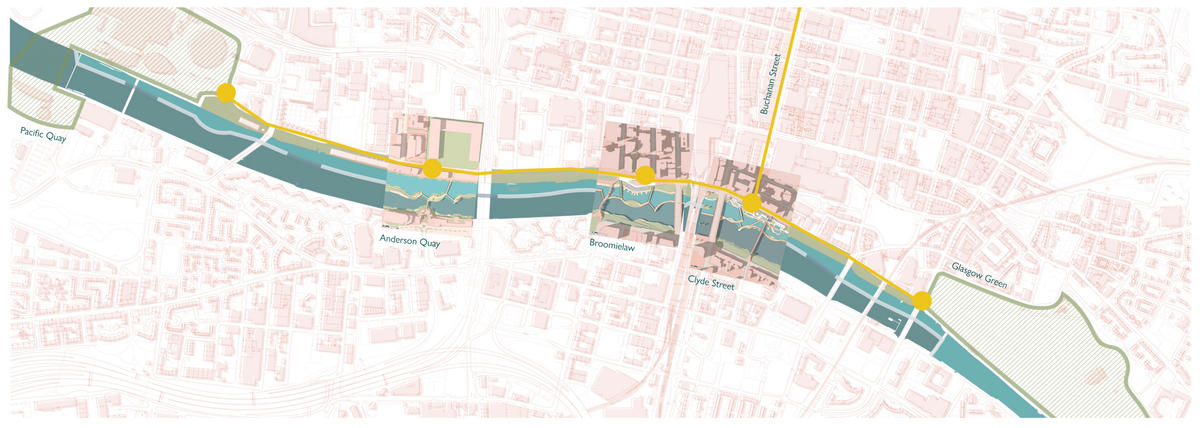
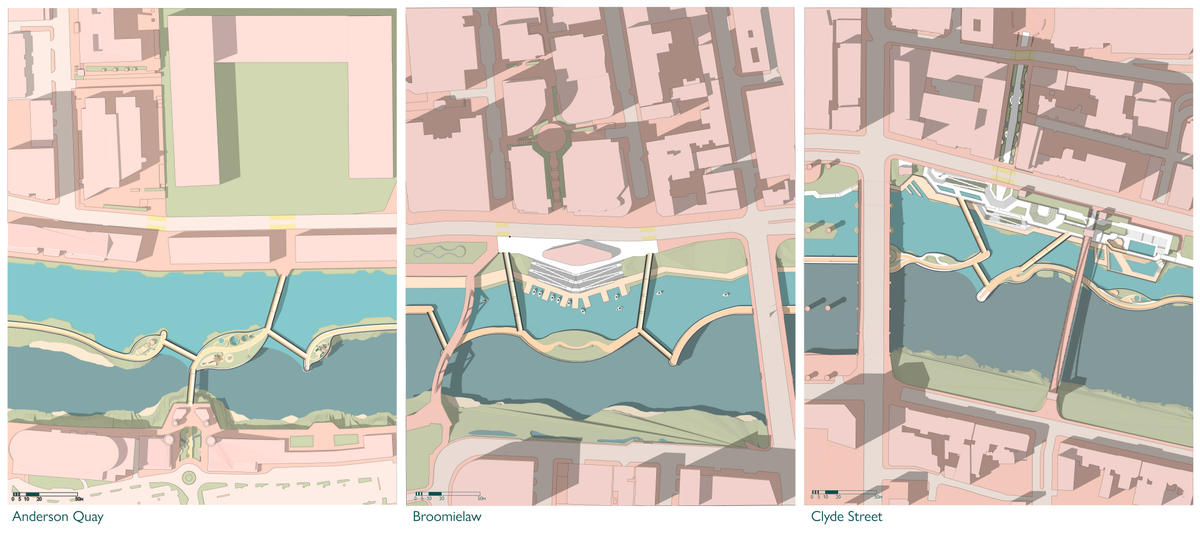
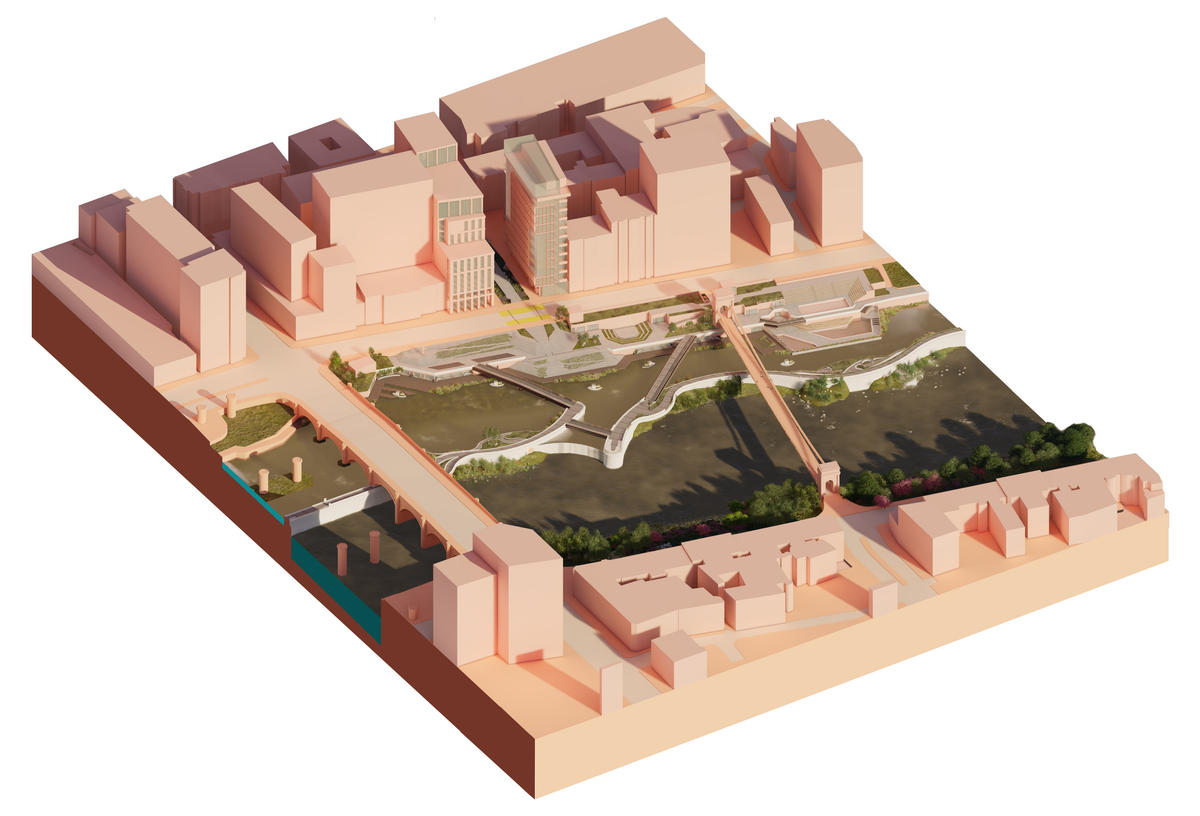
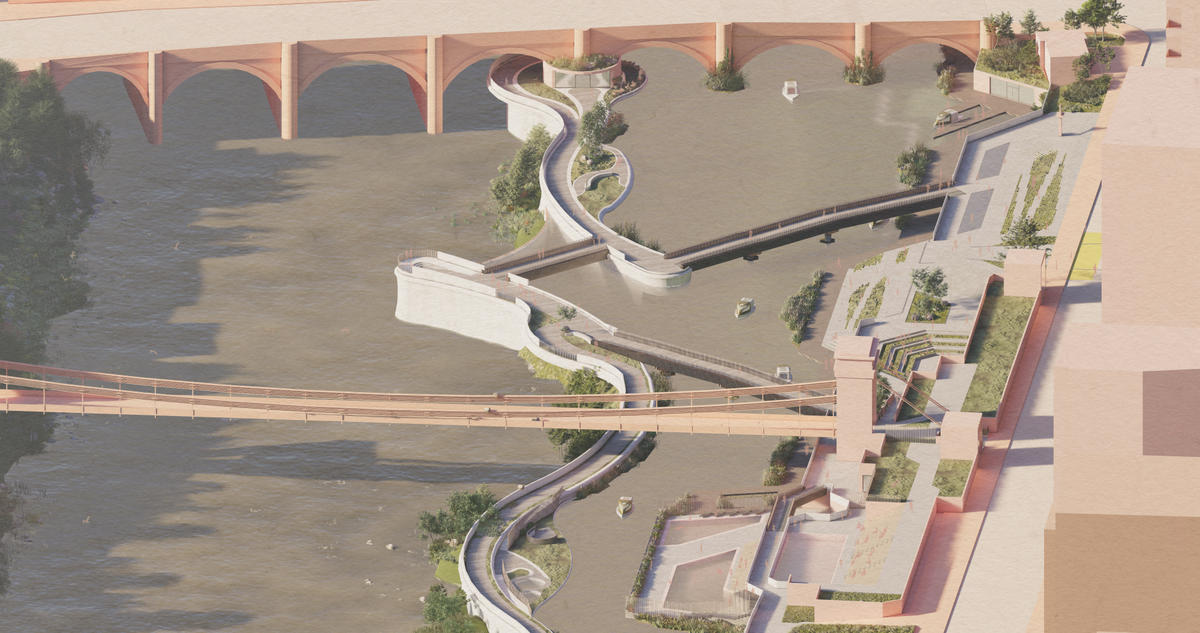
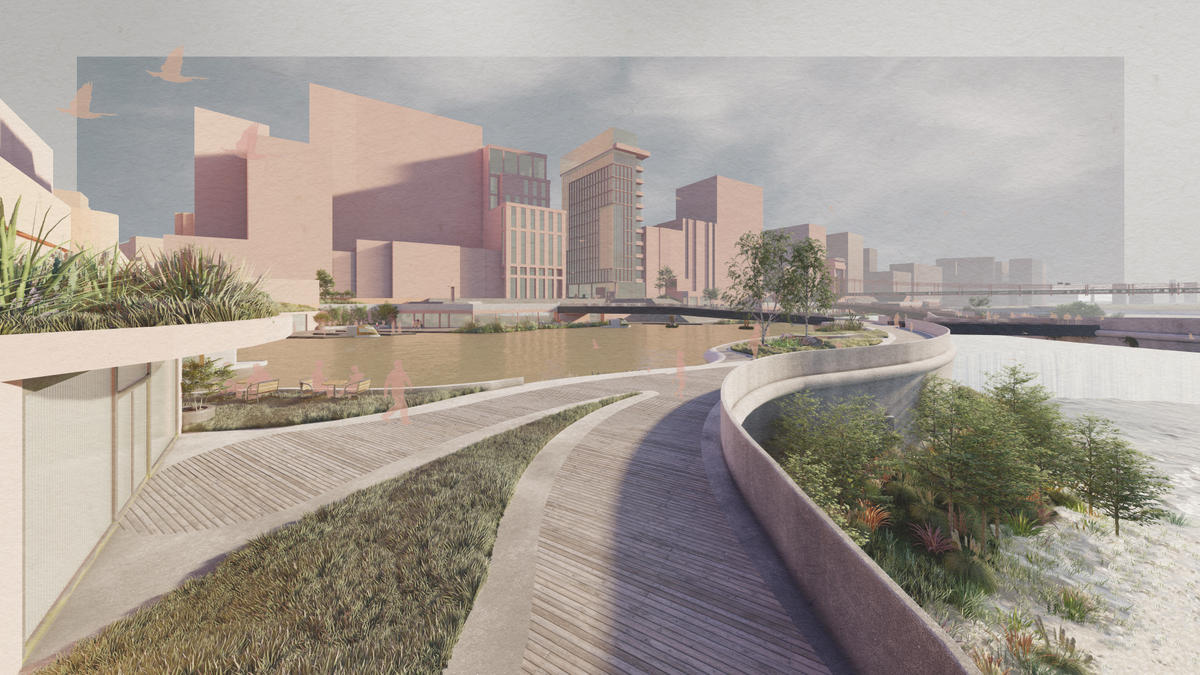
Thesis Summery Diagram
Looking at how the once globally important River Clyde has been forgotten over the years. What can be done to bring the relevance and social importance back withing the context of Glasgow City Center.
School/Level
Category
Year
Many Post-industrial cities have taken it upon themselves to revive their once key industrial rivers. However, Glasgow has yet to do this effectively despite the river Clyde being an integral part of its history. Once, one of the most important riverways in the world, it is now left forgotten and unconsidered, taken away from the city and human scale. By looking at the potential the river holds for a modern city, Glasgow could successfully take back a huge part of its landscape.
This can be framed in the view of the ethical city, which can then be further defined into four categories.
Looking at its social interaction with the city and how to use it to connect the different sides, East, West, North and South will help bring the city closer together around a key piece of infrastructure.
The ecological possibilities are also important in modern cities and questioning what can be done to bring life back into what has become a barren man-made expanse of water. Where can ecology and the human realm overlap to create a beneficial experience for both, without hindering one another?
Exploring how the technical implications of the river’s natural resources could allow for it to not only be recreational but also a functional power generation which could help Glasgow feedback into making it a more self-sufficient city that can get closer to the goals of being carbon neutral.
Finally, how can the river be effectively regenerated? Not simply by stripping away the riverside for expanses of flat concrete but by using educated typology to create an engaging landscape rather than just a patchwork of unconnected interventions.